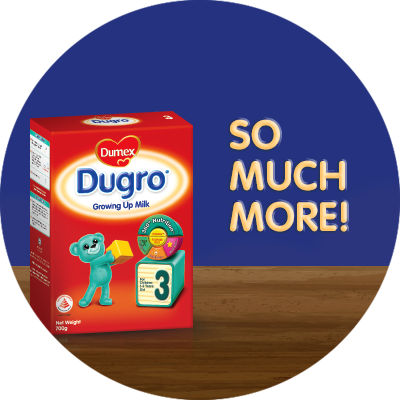Breastfeeding is the best for babies and a healthy diet / maternal nutrition is important when breastfeeding. A decision not to breastfeed can be difficult to reverse. Infant formula is suitable from birth when babies are not breastfed. It is recommended that all formula milks be used on the advice of a doctor, midwife, health visitor, public health nurse, dietitian, pharmacist, or other professional responsible for maternal and child care and the financial implications should be considered. All preparation and feeding instructions should be followed carefully as inappropriate preparation could lead to health hazards.
Child Early Development: What's Happening Around Now?
As well as developing taste buds and the ability to enjoy new foods and textures, your toddler is developing what they can do, how they explore, the way they speak and the way they learn.
Feeding
Although it's tempting to think of toddlers as mini-adults, they still have a lot of growing up to do and their nutritional needs are quite different from ours. Toddlers need a diet which is higher in fat and lower in fibre than that recommended for adults.
To get the right balance of energy and nutrients in their diet, your toddler tends to need 3 small balanced meals a day with regular nutritious snacks in-between.
Doing
Having cruised around the furniture for a few months, your toddler's about to go solo! They'll soon make the jump to walking, running, and bouncing about - a truly exciting milestone!
As their second birthday draws closer, it'll be much clearer whether they are right or left-handed – they'll prefer using their dominant side to scribble, kick a ball and feed themselves. They'll even be able to brush their teeth… with a little help and supervision! As your toddler's co-ordination skills improve even further, they'll become much more active - climbing, jumping and running about which strengthens their muscles, so making sure their diet stays healthy and balanced is vital.
Exploring
At the 12-18 months stage, a toddler's vocabulary is still quite limited and they can't always express their emotions or tell you what they want. So get ready for temper tantrums and fiery outbursts! You'll also start to notice that your toddler becomes more self-aware - saying "I" and "me" a lot. Be patient as they learn to get to grips with the concept of sharing; grabbing toys and shouting "mine" is quite common. And don't worry if your toddler seems to like their own company rather than playing in groups – this is perfectly normal too.
Saying
You'll soon start to notice a huge improvement in your toddler's communication skills as words gradually evolve into phrases and requests.
Don't be too concerned if they don't seem to be using lots of words because at this stage they'll understand far more than they can actually say. Rather than producing fully formed sentences, they'll start by using single words to explain what they want, like 'cup' for 'I want my cup' and 'teddy' for 'give me my teddy'.
Eventually, they'll start putting two words together, like 'play me' when they want you to play with them, and they'll begin to listen with great interest to what you're saying. At this stage, your toddler is more than likely to want to join in nursery rhymes and songs – so it's a good idea to refresh your memory and recall your own childhood favourites!
Learning
An increasing awareness of what's going on mixed with a desire for greater assertiveness means that your toddler might want to take control now and again.
You can encourage this by letting them make their own decisions – perhaps choosing what clothes to wear or what games to play. Encourage your toddler to make use of their new co-ordination skills through walking in different ways - sideways, backwards, forwards - as well as running and jumping.
And be aware of your facial expressions and colourful language - your toddler learns a lot by mimicking you, and you'll be amazed what gets remembered and reproduced where and when you least expect it!
Disclaimer: All content on this Website is provided solely for informational purposes and is not intended as a substitute for medical and/or other professional advice for your specific condition. Please do not disregard medical and/or other professional advice or delay seeking it because of something you have read on this Website. Always seek medical advice before starting any new treatments.


Ask Our Careline
Whatever’s on your mind, we’re here to help




